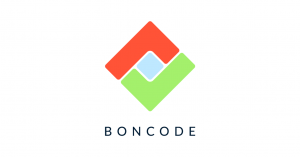Technical debt is the future cost – in time and effort – of improving low-quality code. If your company’s custom software is accumulating technical debt – and you do nothing about it – at some unknown point in the future, software development will come to a standstill.
Rather than waiting for production to halt, it’s better for your business to take a proactive approach to managing technical debt. But technical debt can be hard to surface and quantify – without the right software quality tools.
Here’s how to get it right.
What is technical debt?
Technical debt is the projected future cost attached to repairing low-quality code that has been knowingly implemented for short-term gains. The term was coined by computer programmer, and co-author of the ‘Manifesto For Agile Software Development’, Ward Cunningham.
The concept of ‘technical debt’ is comparable to financial debt. For example, financial debt in the form of a mortgage enables you to buy a house, and it costs you in terms of the interest incurred and added to your repayments. Just as borrowing money incurs interest charges, taking shortcuts in software development incurs technical debt.
Why does technical debt happen?
Technical debt can accrue for a variety of reasons: tight deadlines, limited resources, lack of expertise, and ultimately, short-term gains prioritized over long-term benefits. Common scenarios include:
- Writing overly complex code
- Naming conventions are inconsistent (for things like parameters and functions)
- Duplicating code to deliver faster products
- Delaying refactoring designed to reduce complexity
- Neglecting documentation
- Skipping automated tests
- Deferring necessary updates and upgrades.
In the short term, taking on technical debt can speed up software delivery. But in the long term, it can lead to increased complexity, decreased maintainability, and higher chances of bugs and errors. Some people might argue that technical debt is a necessary evil. The key question is how to handle it effectively.
How to tackle technical debt
Software managers and their development teams need to be aware of technical debt and manage it effectively. The obvious solution is to pay it off over time by refactoring, code improvements, and other corrective actions.
When you decide to take on technical debt, context is everything. To hit a deadline, you might decide to include some code that you know will need cleaning up at a later stage. But this means you need to measure it, because if you measure it you have the number to show whether you’re reducing technical debt – and progress has been made.
With an agile approach to software development, every now and again it’s good practice to allocate sprints to cleaning up technical debt rather than developing new features. Refactoring is an important part of this – restructuring and cleaning up code. The Boy Scout rule applies here: ensure you leave the code better than when you found it.
Manage your technical debt with BonCode
Nothing’s perfect. Especially not software quality. Even with the best intentions and tooling, software quality is rarely ten out of ten. There’s always room for improvement. It always carries a technical debt.
Context is everything. In fact, there’s rarely a need to reduce technical debt to zero. Software development is a continuous balancing act. The trick is how you manage it. For example, if technical debt accumulates around an isolated component that’s rarely touched, it’s not likely to become an issue. However, if it affects a core component, then it’s definitely worth a cleanup.
BonCode’s tool-based consultancy enables companies to score custom source code quality between 0-100. Taking into account multiple variables, our tooling lets you know when to clean up your code before making major changes.
For a demo of our tool-based consultancy for software quality, contact us





